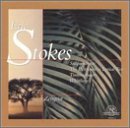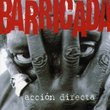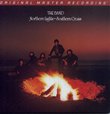CD Details
Synopsis
Album Description"Music is for the people. For all of us: the dumb, the deaf, the dogs and jays, handclappers, dancing moon watchers, brainy puzzlers, abstracted whistlers, finger-snapping time keepers, crazy, weak, hurt, weed keepers, the strays. The land of music is everyone's nation—her tune, his beat, your drum—one song, one vote. " Eric Stokes (1930-1999) was a unique voice in American music. He was a genuine original, justly compared with Ives, Cage, and Henry Brant. A sense of grandeur, a love of nature, and a need for personal freedom were central to both the man and his work. Nicolas Slonimsky, in Baker's Biographical Dictionary of Musicians (8th edition), records that he was "variously described as a crusty, eccentric, wonderfully humorous, very healthy and resourceful American composer of gentle, witty, lyrically accessible music, with a taste for folkloric Americana and a `Whitmanesque' ear." The four compositions on this, the first recording devoted entirely to his music, evince, in varying degrees and combinations, all these attributes. Susquehannas (1985) is a nature-inspired ode to the Indians who lived in the Eastern mountains. The Pickpocket is Lyrical Two (1994) incorporates several folk melodies (and a few of the composer's own) in a fairly straightforward setting rich in lyricism and humor. Tintinnabulary (Phonic Paradigm IV) (1983), for two percussionists, is a beautiful exploration of sound qua sound, an attempt "to ring some few of the sounding world's most multitudinous tintinnabularies." Whittlings (1992) was composed as a sonic metaphor on the art of whittling. Metaphor aside, it's a witty, jazz-inflected rhythmic workout that brings the program to a spirited conclusion.
Similar CDs
| |
CD Reviews
An original and interesting compositional voice - but short Discophage | France | 05/07/2007 (4 out of 5 stars) "Some fine and original composers seem not to get their breakthrough. And then, they die. Eric Stokes was born in 1930 and passed away in 1999. His career was mostly academic (University of Minnesota) and he was active as a promoter of contemporary music in and around Minneapolis. His output is sizeable (more than eighty works), including six operas, commissions and performances from some major orchestras and music organizations, but very little of it has been recorded.
I first encountered the music of Eric Stokes through his "Song Circle", on a CD of the Jubal trio (soprano, flute, harp) which I had acquired for the pieces of George Crumb and Donald Freund it contained (see my review of Jubal Songs - Donald Freund: Backyard Songs / George Crumb: Federico's Little Songs for Children / Harvey Sollberger: Life Study / Tania Leon: Journey / Eric Stokes: Song Circle - The Jubal Trio). I liked the piece enough to want to explore more of this composer.
On the basis of the pieces contained on the present New World CD, Stokes' compositional voice is original and interesting. He is interested in subtle, mysterious sounds blending clarinet and bells, chimes and wooden instruments, as in "Nostrum" and "Whangdoodles", the first and third pieces from "Susquehannas", a cycle inspired by the early inhabitants of the Eastern mountains, or again in "Breath Can Blow Both Ways" and "Go `Way From My Window", the even-numbered pieces from "The Pickpocket is Lyrical Two", a cycle that "goes back to some favorite folk songs still flourishing at the grass roots level". He likes to draw eerie sounds from the reeds, thanks to unusual playing techniques and electronic transformations (I think this is what is at play in "Buffalo Bones", the second Susquehannas piece, but it's hard to tell, so unusual are the sounds that are produced), to which he adds whistling, fiddling with the piano tone production ("Whangdoodles"), synthesizer ("Breath Can Blow Both Ways" and "Go `Way From My Window"). All this has the haunting eeriness of Crumb, without the outbursts of violence. He likes the jaunty rhythm of Jazz or Pop ("Whangdoodles", the odd-numbered pieces from "The Pickpocket is Lyrical Two" and "Whittlings") and fiddling with the piano tone production (Whangdoodles, the third Susquehannas).
In "Tintinnabulary (Phonic Paradigm IV)" he uses recorded and electronically reprocessed sounds of bells, ringing clocks and various "struck, reverberant objects". It sounds like some dream of a mysterious Tibetan ritual seen through the prism of Pierre Henry's "musique concrete".
At 47:30 the timing is short for a CD. 20 more minutes of Eric Stokes would have been greatly appreciated.
"
|




